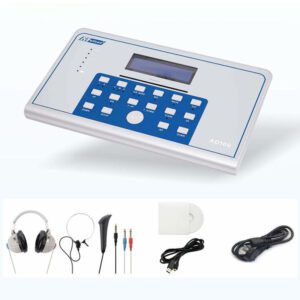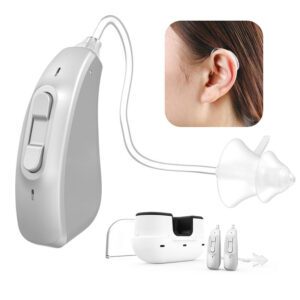For many people, serving in the military is more than just a career choice—it’s a way of contributing to their country and being part of something larger than themselves. But what if you have hearing Loss? Can you still join the army?

hearing is critical for soldiers, not only for communication but also for situational awareness, safety, and effective performance in the field. Many people with mild to moderate hearing loss wonder if they still qualify, and whether modern solutions like hearing Aids could help bridge the gap. The answer, however, varies greatly depending on the country, the degree of hearing loss, and the specific role within the armed forces.
General Hearing Requirements in the Military
Across most nations, hearing standards for military service are strict. Recruits usually undergo audiometric tests that measure their ability to hear tones at different frequencies and their capacity to understand spoken words in noisy environments.
Mild hearing loss may sometimes be acceptable for non-combat roles.
Moderate to severe hearing loss typically disqualifies candidates.
Use of hearing aids during service is often restricted or prohibited in combat roles, as they may fail in harsh conditions.
The reasoning is straightforward: soldiers must be able to hear commands, detect threats, and communicate under stressful and unpredictable circumstances.
United States
In the U.S., the Department of Defense has clear hearing standards for enlistment. Recruits must pass a hearing test called an audiogram. For example, a candidate may be disqualified if their hearing threshold is worse than 30 dB at certain key frequencies or if they struggle with speech recognition.
Combat roles: Hearing aids are not permitted. Service members must meet minimum unaided hearing levels.
Support roles: In some cases, individuals with minor hearing issues may still serve, particularly in administrative, medical, or technical jobs.
Waivers: Rarely, waivers may be granted, but these are exceptions rather than the rule.
United Kingdom
The UK Ministry of Defence also enforces strict hearing standards. Applicants must demonstrate the ability to communicate clearly in challenging environments.
Hearing aids: Generally not allowed, as reliance on them may pose risks in active duty.
Exceptions: For certain technical or support positions, there may be some flexibility.
Overall: The majority of combat and frontline positions require excellent natural hearing.
Canada and Australia
Both Canada and Australia share similar approaches:
Canadian Armed Forces: Require strong hearing for operational readiness. Hearing aids are not permitted for combat troops.
Australian Defence Force: Has strict audiometric requirements. Candidates must pass without the use of amplification devices.
Medical exemptions: In limited cases, mild hearing loss may be accommodated for non-combat duties.
Other Regions: Europe and Asia
Europe: Countries such as Germany and France generally require high natural hearing ability. Candidates dependent on hearing aids are usually excluded.
Asia: Nations like China and Japan also demand unimpaired hearing for recruits, especially for frontline soldiers.
Variation by role: Some civilian or non-combat support positions in these militaries may have slightly less strict requirements, but hearing aids are rarely accepted.
Can You Serve with Hearing Aids?
This is one of the most common questions among people with hearing loss. The short answer is: usually no—especially for combat or field roles.
Reasons include:
Reliability: hearing Aids may fail due to dust, water, or shock in harsh environments.
Safety: Soldiers must wear helmets, headsets, or protective gear that may not be compatible with hearing aids.
Communication: In sudden or noisy combat situations, reliance on an external device could delay reaction times.
That said, some armed forces may allow individuals with mild hearing loss to serve in administrative, medical, or technical roles where the environment is controlled and the risks are lower.
Conclusion
So, can you join the army with hearing loss? The answer depends on where you live, how severe your hearing loss is, and the role you wish to pursue.
Combat roles: Require excellent unaided hearing. Hearing aids are not accepted.
Support roles: In rare cases, mild hearing loss may be accommodated, but restrictions still apply.
Best advice: Contact your local recruitment office to get the most accurate and updated information, as policies differ by country and can change over time.
For those with hearing loss who cannot enlist, there are still many other meaningful ways to serve their communities, such as in public service, volunteering, or joining civilian defense organizations. While hearing loss may limit certain paths, it doesn’t diminish your ability to contribute.


